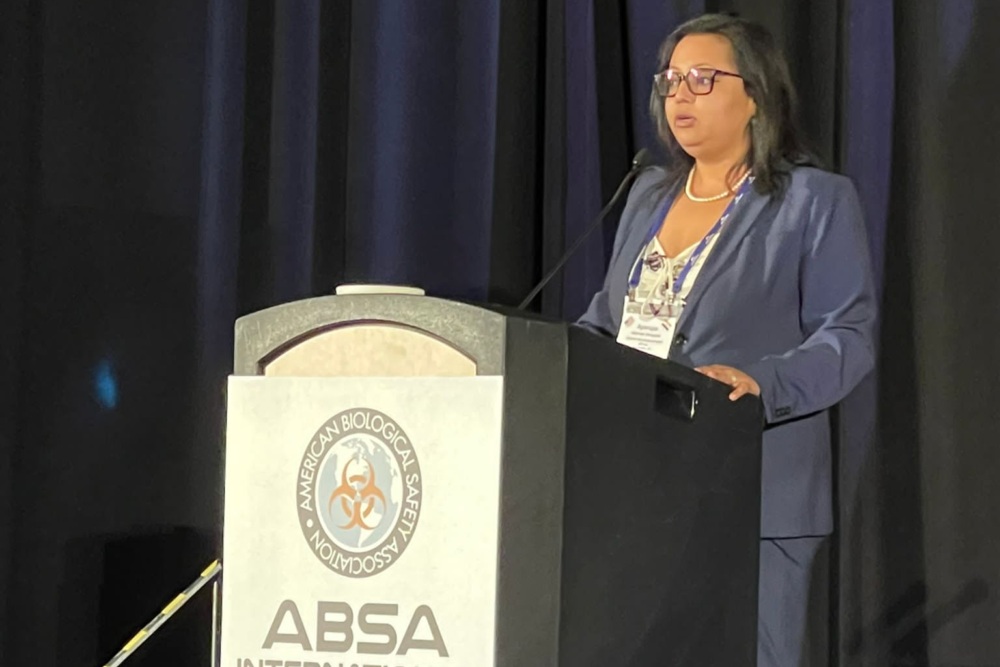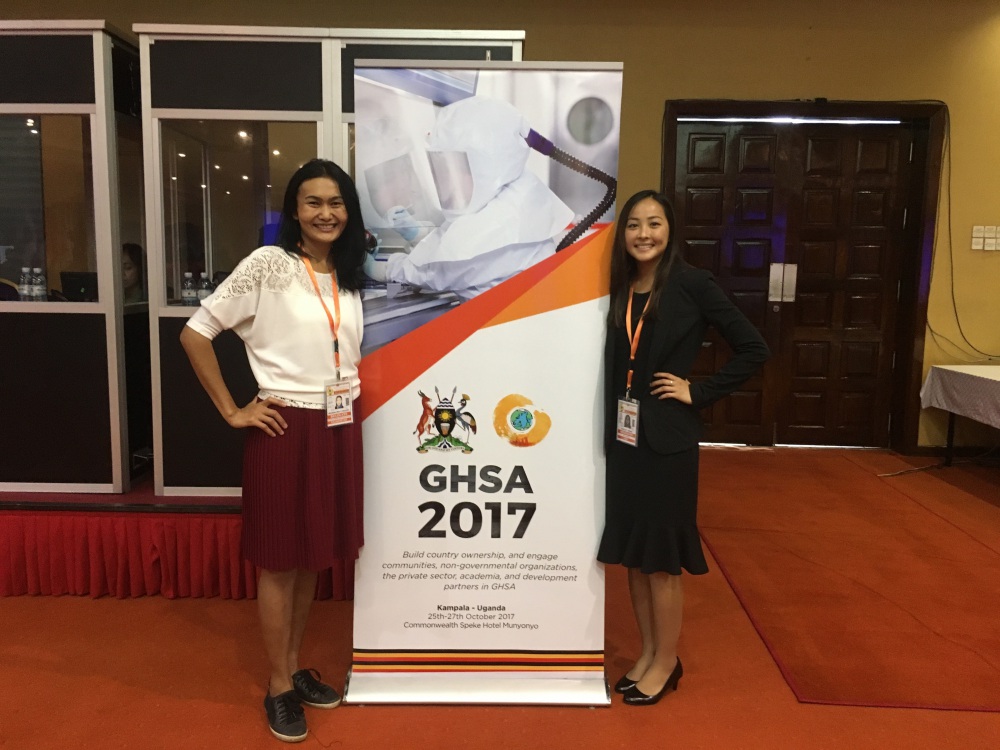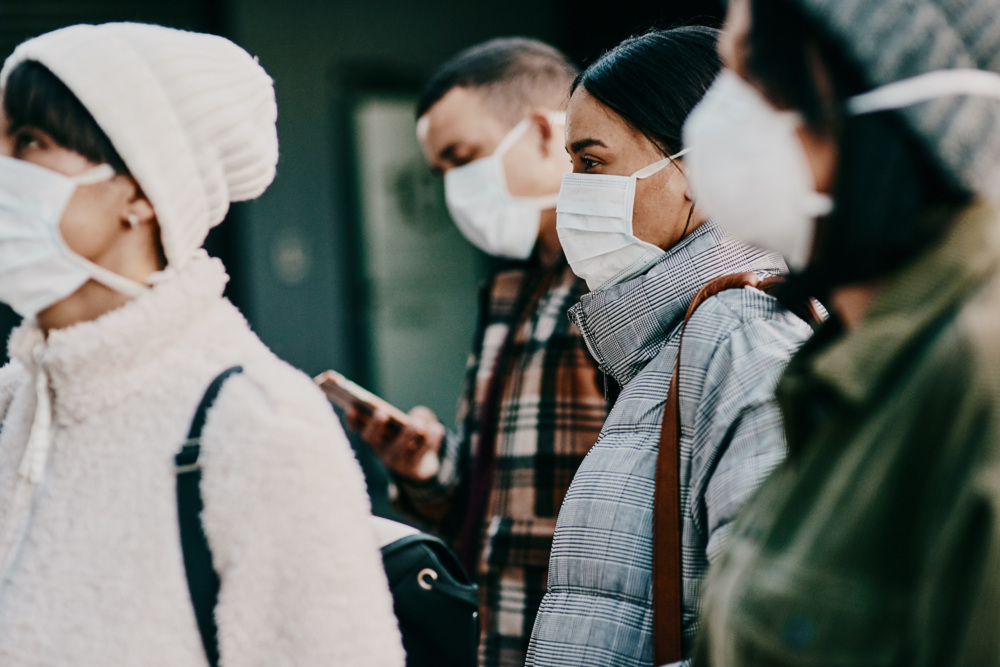
Beyond Borders, Beyond Biases: Building a Biosecure Future with Diverse Voices
NTI | bio Senior Program Officer Dr. Aparupa Sengupta on why efforts to strengthen global biosafety and biosecurity must prioritize diversity and inclusion.
Atomic Pulse
This week in Kampala, the Prime Minister of Uganda, Hon. Ruhakana Rugunda, announced the winners of NTI’s Next Generation for Biosecurity in GHSA Competition. Supported by NTI in collaboration with the Next Generation GHS Network, the competition was designed to help develop linkages and creative approaches across regions and sectors to achieve the biosecurity-related targets of the Global Health Security Agenda (GHSA) and the World Health Organization Joint External Evaluation (JEE).
First prize was awarded to Lyazzat Musralina (Institute of General Genetics and Cytology, Kazakhstan), Elshad Rzayev (Republican Veterinary Laboratory of the State Veterinary Control Service, Azerbaijan), and Ashley Tseng (McGill University, Canada). The following blog post was written for the team by Tseng.
To augment the International Health Regulations (IHR) 2005, a legal instrument recognized by the World Health Organization, the Global Health Security Agenda (GHSA) was launched in 2014 to provide a framework to pursue nine related objectives for detecting, preventing, and responding to future infectious disease outbreaks and improving preparedness. GHSA has a biosafety and biosecurity objective to promote best practices at a national level. To assess a country’s GHSA-related objectives, partnerships are formed where one country performs a joint external evaluation (JEE) of another country’s capacities. To effectively implement the GHSA, it is important to recognize that there are clear biosecurity gaps in both the GHSA and JEE.
To help address these gaps, our team submitted a proposal to the Next Generation for Biosecurity in GHSA Competition co-hosted by Nuclear Threat Initiative (NTI) and the Next Generation Global Health Security Network (GHSN). On October 26, 2017, we will present our proposal at the 4th Annual GHSA Ministerial Meeting in Kampala, Uganda.
Using existing biosecurity best practices, standards, and policies, we propose outlining related research and learning to inform national policy development and creating a novel platform for networking across sectors and regions to achieve GHSA and JEE biosecurity objectives. The goal is to create a model for next generation biosecurity professionals to engage with experts in the field through a question-and-answer forum, as well as a centrally located database of biosecurity resources and tools to help users meet the biosecurity targets outlined in the GHSA and JEE. The biosecurity forum and resources would be accessible both globally and remotely to build knowledge-sharing across the public health, veterinary, and research sectors.
Today there is an array of biosecurity threats both known and unknown. With technological advances such as the de novo synthesis of horsepox virus, it has become imperative that biosecurity professionals be well-trained and well-equipped to recognize these risks. Although there is an abundance of resources available, there is no roadmap to follow or central location for individuals to access them. To increase utility and knowledge-sharing of existing, open-source resources, we propose building a centralized hub that will allow for communication and easy access to the resources as part of a larger plan to achieve the biosecurity and biosafety objective set by the GSHA.
Sign up for our newsletter to get the latest on nuclear and biological threats.
NTI | bio Senior Program Officer Dr. Aparupa Sengupta on why efforts to strengthen global biosafety and biosecurity must prioritize diversity and inclusion.
NTI is working with international partners to develop a new Joint Assessment Mechanism (JAM) within the office of the UN Secretary-General to rapidly identify outbreak origins. Without the ability to quickly determine the origin of an outbreak, researchers are hampered in their ability to rapidly develop vaccines and other medical countermeasures that can slow the pace of the outbreak, ultimately saving countless lives.
NTI | bio Senior Director Nathan Paxton on using democratic collaboration to improve pandemic security


